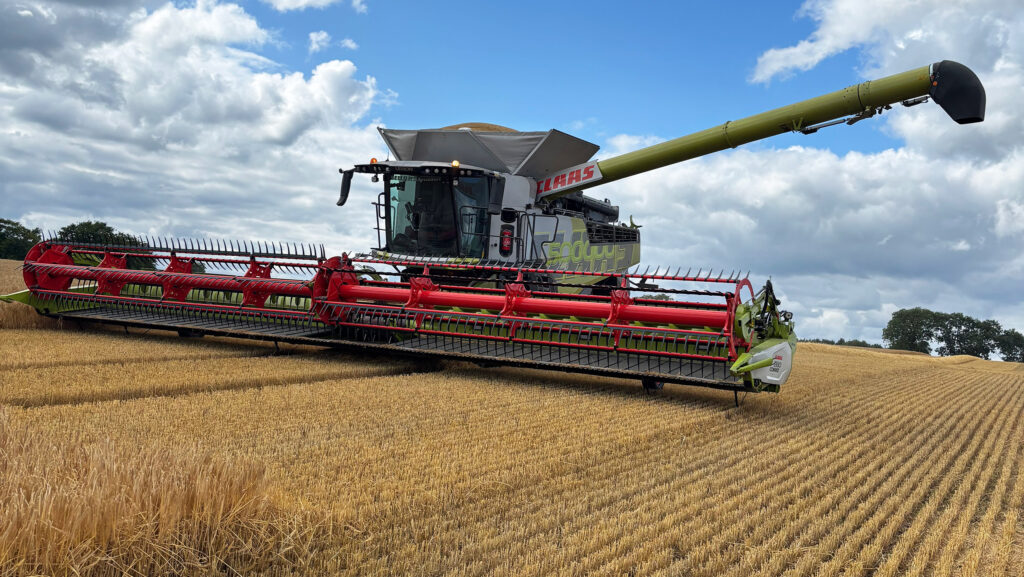Harvest 2025: Winter barley harvest 92% complete
 Winter barley harvest at Rosebery Estates, Cousland Farm in West Lothian © Andrew Cassells
Winter barley harvest at Rosebery Estates, Cousland Farm in West Lothian © Andrew Cassells This year’s harvest got off to a quick start, but intermittent rainfall last week has caused a noticeable slowdown.
One thing is for certain, there is no consistent picture of UK yields so far, with significant variation in trends both within regions and farms.
AHDB senior cereals and oilseeds analyst Helen Plant explains: “So far, oilseed rape and winter barley yields are encouraging, while early winter wheat yields are below average.”
See also: Harvest 2025: The 5 top-yielding winter barley varieties map
Winter barley
Winter barley harvest was 92% complete by 23 July. The only UK areas still harvesting were Scotland and Northern Ireland.
Yields have been highly variable; reports on farm vary from 29% down on the five-year average to 19% above.
Overall, the UK winter barley yield is in line with the five-year average at 6.7t/ha.
The quality is generally good, but given the hot, dry spring/early summer, grain nitrogen levels are high. This may be challenging for some malting barley end markets.
Winter oilseed rape
Oilseed rape yields have been very encouraging for the most part, with more than half (54%) of the UK area harvested.
Quality is good too. The 2025 UK average yield is estimated to be 3.76t/ha – that is 21% above the five-year average UK yield of 3.11t/ha.
Recent rainfall has resulted in some growers getting ahead and planting next year’s oilseed rape crop.
Other crops
Winter wheat, oat and spring barley harvesting is underway, but still at early stages, so information to date does not reliably point to the total UK crop.
Early winter wheat yields have been disappointing, though quality is reported to be good for samples processed so far.
“The winter wheat harvest is still in the initial stages. With the weather so changeable, it’s very difficult to predict the final results at this stage,” notes Helen.
With further rainfall forecast, some growers have been cutting crops at higher moistures where wet weather is likely to impact quality, especially milling wheat.
Season verdict
Generally, moisture has been the limiting factor this season. Those on lighter soils have seen poorer yields, while heavier, moisture retentive soils have fared better.
Straw yields are highly variable depending on the level of moisture available to the crop during stem extension, but many crops are shorter than usual.

